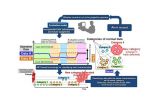Hitachi Launches AI-Assisted Predictive Maintenance Service for Petrochemical Plants

Hitachi, Ltd. announced that it has now started offering the predictive maintenance service for petrochemical plants. It makes use of artificial intelligence (AI) to automatically classify and analyze the petrochemical plant's operation status in preparation for the real-time detection of changes in conditions and abnormalities that may be signs of failure. The service collects plant operation data and analyzes them by means of the adaptive resonance theory (ART), one of AI-based data clustering technologies, to swiftly detect abnormalities in devices and equipment that constitute the plant arising from multiple causes that are difficult to be discovered by predictive maintenance systems based on ordinary prediction models or by human judgment. It will help reduce not only the workload of operators monitoring the plant's operation but also the failure occurrence ratio to increase efficiency in operation and maintenance.
This predictive maintenance service has been developed and commercialized through a demonstrative trial conducted by Hitachi in collaboration with Showa Denko K.K. ("Showa Denko") at the ethylene plant in Showa Denko's Oita Complex. It came into service for the practical operation of the plant in October 2018.
Oil refineries, petrochemical plants and other plants require the constant maintenance of safe and stable operation. It is common for skilled operators to check the data from the monitoring and control system and carry out on-site patrols to perform visual inspections in order to grasp the operation status of individual devices and equipment for the purpose of monitoring plant operation. However, even when individual devices and equipment in the plant are in normal operation, multiple factors such as the flow rate, pressure and temperature may bring the plant to a halt. The plant operation monitoring is therefore dependent on the judgments of skilled operators based on their experience and expertise. Meanwhile, the shrinkage of the working population means that it is becoming increasingly difficult to secure skilled operators. It is therefore necessary to increase operation and maintenance efficiency with the aim of reducing the staff workload, and to resolve this issue with the use of digital technologies.
Under these circumstances, Hitachi has developed a predictive maintenance technology for plants. With the active use of the AI technology of Lumada, solutions for digital innovation, as well as its abundance of expertise in operational technology (OT) that plant design and process control for energy and chemical field, this technology evaluates signs of changes in conditions and abnormalities in the entire petrochemical plant on a real-time basis. It was confirmed that this technology analyzed conditions for the occurrence of coking* as a possible cause of plant failure, which used to be difficult to determine, and successfully detected signs of coking independently from skilled operators when it was applied to the ethylene plant in Showa Denko's Oita Complex.
Accordingly, Hitachi has begun offering this technology that reflected the result of demonstration as predictive maintenance service for petrochemical plants. At Showa Denko, this service will commence full operation for the practical operation of the ethylene plant where the joint demonstrative trial was conducted. To prevent plant failure, Showa Denko will work toward developing operation methods that align with the state of coking and methods of inhibiting coking. In addition, Showa Denko will introduce it to other manufacturing processes and plants.
The introduction of this service allows petrochemical plant manufacturers to transform conventional operation monitoring based on the experience and expertise of skilled operators into more efficient and advanced monitoring based on detection data. Since it detects signs of abnormalities that are overlooked by humans, it helps lower the plant failure ratio as well as maintenance costs.
In the future, Hitachi will offer this service broadly to Japanese and overseas markets as a solution based on Lumada, and support the safe, stable operation of petrochemical plants.
This service incorporates one of Lumada's AI technologies, an analysis engine by ART. After advance learning of data on the past normal operation of plant devices and equipment, such as temperature, pressure, water level and flow rate, it classifies correlations of data that serve as yardsticks for evaluating possible signs and automatically creates a category of normal data. It then automatically classifies new data obtained from actual plant operation and compares them with the category of normal data to determine whether the operation is normal. In the event of the generation of a new data category, it issues an alert to the operators to urge them to make a decision. The operators judge whether the plant is in a normal state by the plant operation status and the factors involving the difference from the category of normal data (such as temperature and pressure). They can improve the accuracy of this service's future evaluation by having this service learn their decisions. In addition, it visualizes not only abnormalities of individual devices and equipment constituting the plant, but also their spread to other devices and equipment in the plant. It therefore enables them to be understood to help swiftly restore the normal state of operation. The analysis engine by ART has been developed on the basis of technologies and knowledge that have been cultivated for years by Hitachi's Research & Development Group with a view to its application to thermal power generation, water treatment and other large-sized plants and through demonstration trials at plants.
* Coking is adhesion in piping and elsewhere of coke, which is a solid substance generated from the decomposition of naphtha, a type of poor quality gasoline.
Source of information
Hitachi, Ltd. & Profibusiness.world
Date
October 08, 2018

